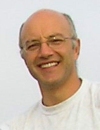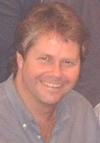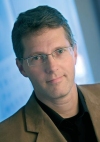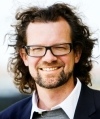Dissemination
- Workshops
- Past Workshops
- Schools and Seminars
- International Collaboration
- Publications
- Contributions to Standards
- Course Materials Available Online
ARTIST Summer School in China 2011
| August 8-12, 2011 IOS/ISCAS - Beijing, China | organised and funded by ARTIST complementary funding from IDEA4CPS and IOS/ISCAS |
Invited Speakers
Professor Luis AlmeidaUniversity of Porto, PortugalLuis Almeida is currently an associate professor at the Electrical and Computer Engineering Department of the University of Porto and a member of the Institute of Telecommunications in Porto and of the Electronics and Telematics Engineering Institute of Aveiro in which he coordinated the Electronic Systems Lab between 2003 and early 2008. He is also a member of the IEEE, Computer Society, and particularly of its Technical Committee on Real-Time Systems, member of the IFIP Tecnical Committee on Embedded Systems, member of the Strategic Management Board of the EU/ICT NoE ArtistDesign, leading the Real-Time Networks activity in that NoE, Trustee of the RoboCup Federation and Vice-President of the Portuguese National Robotics Society. His current interests are real-time communication protocols for embedded systems with an emphasis on mechanisms to support predictable operational flexibility as needed for dynamic QoS management, graceful degradation and open distributed real-time systems in general. He co-authored over 150 refereed publications, 3 patents and 6 book chapters. He regularly participates in the organization and program committees of scientific events in the Real-Time Systems and Robotics communities, including RTSS, ECRTS, DATE, SIES, WFCS, ETFA and RoboCup. |
 |
| Course: Real-Time Communication in Embedded Systems | |
| Abstract: Distributed real-time systems are becoming pervasive, either in process control, factory automation and more recently, embedded systems. This course will present an introduction to computer networks from a real-time systems perspective. The lectures include an initial presentation of general concepts in networks and then focus on the physical and data link layers, devoting particular attention to the medium access control. Then, the course will address the issue of traffic scheduling and its relationship with medium access control, showing typical schedulability analysis that can be used to derive a priori guarantees of traffic timeliness. A few paradigmatic protocols will then be presented and analyzed, including a reference to the growing interest on wireless communication. Finally, the course will address a few related on-going research efforts, mainly towards flexible real-time communication for adaptive and reconfigurable systems. |
|
Professor Karl-Erik ArzenLund University, SwedenKarl-Erik Årzén was born in Malmö, Sweden on October 4, 1957. He received his M.Sc in Electrical Engineering and PhD in Automatic Control from Lund University in 1981 and 1987 respectively. He was appointed as professor in automatic control in 2000. He has also worked for ABB Corporate Research during 1992-1994. His research interests includes real-time systems, real-time and embedded control, control of computer software systems, discrete event and sequential control, and intelligent control systems. He has published more than 120 journal articles and conference papers. He is the leader of the Control for Embedded Systems cluster within the EU/IST Network of Excellence ARTIST2 since 2004. He was the chairman of the IEEE Control System Society Technical Committee on Real-Time Control, Computing, & Signal Processing 1999-2002. He is vice chairman of the IFAC Technical Committee on Real-Time Computing & Control since 2002. In 2006 he received the Guido Carlo-Stella award from the World Batch Forum for his contributions to manufacturing automation. |
 |
| Course: Control for Embedded Systems | |
| Abstract: The aim of the course is to give an overview of embedded control systems and of the use of control techniques in computer software systems. The course is intended for an audience having their main background in computer science and engineering. The course consists of five modules, each consisting of two 60 minute hours, with a 15 minute break in between Course Modules: |
|
Professor Kim Guldstrand LarsenUniversity of Aalborg, DenmarkKim Guldstrand Larsen (1957) is Professor in Computer Science at Aalborg University (1993- ), and has been Industrial Professor at Twente University, The Netherlands (2000-2007). He is currently director of CISS, the Centre for Embedded Software Systems, a national centre of excellence within ICT bridging between industry and research (2002- ). He is the leader of the Modeling and Validation Cluster within the ArtistDesign European Network of Excellence, and is director of the DaNES project (Danish Network for Intelligent Embedded Systems). His research interests include modeling, verification, performance analysis of real-time and embedded systems with application and contributions to concurrency theory and model checking. In particular since 1995 he has been prime investigator of the tool UPPAAL and co-founder of the company UP4ALL International. He has published more than 150 publications in international journals and conferences as well as co-authored 6 software-tools. He is or has been editorial board member of the journals: Formal Methods in System Design, Theoretical Computer Science and Nordic Journal of Computing. He is a member of the steering committee for the ETAPS conference series, the CONCUR conference series, the TACAS conference series and the FORMATS workshop series. He is member of the Royal Danish Academy of Sciences and Letters, Copenhagen, and is member of the Danish Academy of Technical Sciences. |
 |
| Course: Validation, Synthesis and Performance Evaluation of Embedded Systems | |
| Abstract: Model-driven development is a key to dealing with the increasing complexity of embedded systems, while reducing the time and cost to market. The use of models should permit early assessment of the functional correctness of a given design as well as requirements for resources (e.g. energy, memory, and bandwidth) and real-time and performance guarantees. Thus, there is a need for quantitative models allowing for timed, stochastic and hybrid phenomena to be modeled and analyzed. UPPAAL is a tool for modeling, simulating and verifying real-time and hybrid systems, developed collaboratively by Deparment of Computer Science at Aalborg University and Department of Computer Systems at Uppsala University since the beginning of 1995 (see www.uppaal.com). UPPAAL and the branches CORA and TIGA provide an integrated tool environment for modeling, validation, verification and synthesis of real-time systems modeled as networks timed automata, extended with data types and user-defined functions. The lectures will provide details on the expressive power of timed automata in relationship to embedded systems as well as details on the power and working of the UPPAAL verification engine. The lectures will also introduce a new highly efficient statistical model checking engine of UPPAAL settling soft-real time performance properties of the type "within T time-units a given request R will have been granted with probability at least P" with a desired level of confidence. During the lectures the demonstration and application of the UPPAAL tool suite will be given on a number of practical and industrial cases, including schedulability analysis and WCET analysis. |
|
Professor Jan MadsenTechnical University of DenmarkJan Madsen is Professor in computer-based systems at DTU Informatics at the Technical University of Denmark. He is Deputy Head of the Department of Informatics and Head of the Section on Embedded Systems Engineering. He is the leader of the Hardware Platforms and Multiprocessor System-on-Chip Cluster within the EU/IST Network of Excellence ArtistDesign and member of the Strategic Management Board of ArtistDesign. He is senior member of IEEE and is currently serving as Vice Chair of IEEE Denmark Section. His research interests are related to design of embedded computer systems. In particular system-level modeling and analysis of multiprocessor systems, including RTOS modeling and hardware/software codesign. He is generally interested in design methodologies (including CAD tools) and implementations of embedded systems, covering areas of adaptable systems, wireless sensor networks and biochips. He has published more than 110 publications in international journals and conferences as well as co-authored 11 book chapters. Jan Madsen is the lead delegate for Denmark in the Governing Board of the ARTEMIS Joint Undertaking, a pan-European research initiative for public-private partnership in Embedded Systems. He is on the steering committee of InfinIT, a national innovation network on ICT, where he is coordinating the strategic focus area on Embedded Systems. He is principle investigator in SYSMODEL and ASAM (both funded by ARTEMIS JU) and activity leader of Execution Platforms and Chairman of the Steering Board of DaNES (funded by the Danish Advanced Technology Foundation). He is participating in ProCell (NABIIT), programmable biochips, and in Wireless Sensor Network for Climate and Environmental Monitoring together with Delta. He is participating and member of the management board for IDEA4CPS, a new Chinese-Danish Basic Research Center for theoretical foundation for Cyber-Physical Systems (Danish Basic Research Foundation) He is Program Chair of CODES+ISSS’11 and General Chair of NOCS 2012, and he has been Program Chair of DATE’07 and CODES’00, and General Chair of CODES’01. He is member of the Steering Committee of CODES+ISSS (ESWEEK). He is or has served on numerous program committees, including SIES, ARC, NOCS, LCTES, DAC, CODES+ISSS, ISSS, CODES, RTSS, DATE, SAC, and PARC. |
 |
| Course: Platform-Based Design: From Multi-Core Platforms to Biochips and beyond | |
| Abstract: One of the challenges in modern embedded system design is to map the application onto a platform such that essential requirements are met. In order to do so at an early stage in the design process, where not all parts have been implemented or even designed, a system-level model of the application executing on the platform is needed. This model should allow for an accurate modeling of the global performance of the system, including the interrelationships among the diverse processing elements, physical interfaces and inter-connections. This course gives an introduction to the problem of mapping applications onto platforms. The course is split in two parts: Part 1: Multi-core platforms. The process of mapping covers the allocation of tasks to processors of the platform and the definition of their execution order, i.e. the task scheduling. The course will focus on task scheduling for parallel systems. It will cover basic architectures for multi-core platforms and how to model these, as well as how to model the application as a parallel program. The course will cover both basic scheduling algorithms (handling static scheduling) and more advanced algorithms, which are able to handle consequences of the, often complex, communication structures of the platform. Part 2: Biochips. Microfluidic biochips are replacing the conventional biochemical analyzers, and are able to integrate on-chip all the necessary functions for biochemical analysis. There are several types of microfluidic biochips, each having advantages and limitations. In flow-based biochips the microfluidic channel circuitry on the chip is equipped with chip-integrated microvalves that are used to manipulate the on-chip fluid flow. By combining several microvalves, more complex units like mixers, micropumps, multiplexers etc. can be built up, with hundreds of units being accommodated on one single chip. In droplet-based biochips, the liquid is manipulated as discrete droplets on an electrode array. For both types of biochip, the synthesis process, starting from a biochemical application and a given biochip architecture, determines the resource allocation, binding, scheduling and placement of the application operations, resembling the mapping process for multi-core platforms. The course will illustrate how techniques and methods from multi-core platforms can be used to solve synthesis and optimization problems of biochips. |
|
Professor Peter MarwedelTechnical University of DortmundPeter Marwedel received his Ph.D. in physics from the University of Kiel (Germany) in 1974. He worked at the Computer Science Department of that University from 1974 until 1989. In 1987, he received the Dr. habil. degree for his work on high-level synthesis and retargetable code generation based on the hardware description language MIMOLA. Since 1989 he is a professor at the Computer Science Department of TU Dortmund. He served as the Dean of that Department between 1992 and 1995. His current research is focussed on software for embedded systems, with emphasis on code generation techniques for embedded systems, in particular memory and energy-aware compilers. His publications include the books : He received the teaching award of his University in 2003, is ACM senior member and an IEEE fellow, due to his contributions to compilation techniques and embedded system design. He is a member of the ArtistDesign network of excellence on embedded and real-time systems in Europe. Dr. Marwedel heads the ICD, a private technology transfer center at Dortmund and is actively promoting the use of research results in industry. |
 |
| Course: Embedded System Foundations of Cyber-Physical Systems | |
| Abstract: Cyber-Physical Systems (CPS) are integrations of computation and physical processes [Edward Lee]. Information processing systems in such integrations are called embedded systems. The tutorial will start by describing the key characteristics of embedded systems as well as requirements for their specification techniques and modeling. Different models of computation will be presented. The second part of the tutorial will explain the impact of the integration into cyber-physical systems on hardware and software components. The third part will focus on the mapping of applications onto embedded platforms and techniques for the evaluation of the resulting designs. The fourth and final part will focus on a treatment of optimizations aiming at a reduction of the energy consumption and the worst-case execution time (WCET). Overall, the tutorial will be structured as follows: Introduction, motivation, characteristics and modeling techniques Impact of the integration of information processing with physics on hardware and software components Mapping of applications onto platforms and how to evaluate the resulting designs Optimizations minimizing energy consumption and worst case execution time (WCET) The presentation will provide a context for the other presentations. |
|
(c) Artist Consortium, All Rights Reserved - 2006, 2007, 2008, 2009

